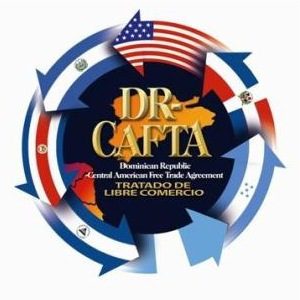
A recent analysis by the Atlantic Council strongly asserts that modernizing the Dominican Republic-Central America Free Trade Agreement (DR-CAFTA) is a critical, dual-purpose mission for both Washington and Santo Domingo, framing the update as a geopolitical imperative necessary to secure regional stability and economic advantage.
The findings emphasize that the current agreement is functionally outdated, posing risks to US economic interests and leaving the Dominican Republic’s economy vulnerable.
Modernizing the Central America-Dominican Republic Free Trade Agreement (CAFTA-DR) is considered important for both the Dominican Republic (DR) and the United States for economic, strategic, and security reasons.
The original agreement took effect between 2006 and 2009, and the world economy has changed significantly since then.
The perspective of the Atlantic Council is that for the United States, updating the pact is seen as a crucial strategic move to counter Beijing’s growing influence in Central America and the Caribbean. By offering a “compelling alternative” to China’s often “opaque financial approach,” modernization is intended to keep key trade partners, particularly the Dominican Republic, firmly aligned with the United States.
The proposed upgrades focus on supply chain resilience. Several key points for the upgrade are:
North American Corridor: Modernization would encourage the strategic relocation of manufacturing and sourcing away from China-dependent networks. Aligning the pact’s standards with the United States-Mexico-Canada Agreement (USMCA) would create a more coherent North American-Central American production corridor.
Stability and migration: An upgraded agreement is also viewed as a tool for regional stability, helping to reinforce economic resilience, reduce migration pressures fueled by economic fragility, and foster inclusive growth among partner nations.
Trade barrier removal: The modernization is needed to tackle current friction points for the US private sector, including regulatory opacity, customs delays, and technical barriers that impede trade across the CAFTA-DR members.
Economic lifeline for the Dominican Republic
For the Dominican Republic and the wider region, the Atlantic Council argues that modernization is critical for enhancing economic integration, competitiveness, and attracting high-quality Foreign Direct Investment (FDI).
The pact’s trade rules, largely unchanged since 2005, must be overhauled to address the realities of the modern global economy. Key deficiencies highlighted in the report include:
Digital trade and data flows: The agreement lacks modern, binding rules essential for governing data flows and trade in the rapidly expanding digital sector.
Boosting near-sourcing: Rules of origin for sectors like textiles, autos, and electronics must be updated to better reflect modern regional value chains and explicitly incentivize companies to participate in near-sourcing—moving production closer to the US market.
Services and investment: Chapters covering tradable services, such as cloud computing and fintech, as well as intellectual property provisions and dispute settlement, need to be deepened and strengthened.
Sustainability and enforcement: Stronger, more enforceable commitments on labor and environmental enforcement are deemed necessary to support both decent work standards and sustainable regional supply chains.
Ultimately, the analysis concludes that updating DR-CAFTA is a win-win, strengthening resilience against potential economic coercion while cementing the Dominican Republic’s role as an indispensable trade and strategic partner for the United States.
The Atlantic Council is generally considered to have a centrist, internationalist bias that favors a strong U.S. global leadership role, pro-NATO perspectives, and a robust Western alliance. The Council receives funding from public and private sources.
Read more:
Atlantic Council
20 November 2025

